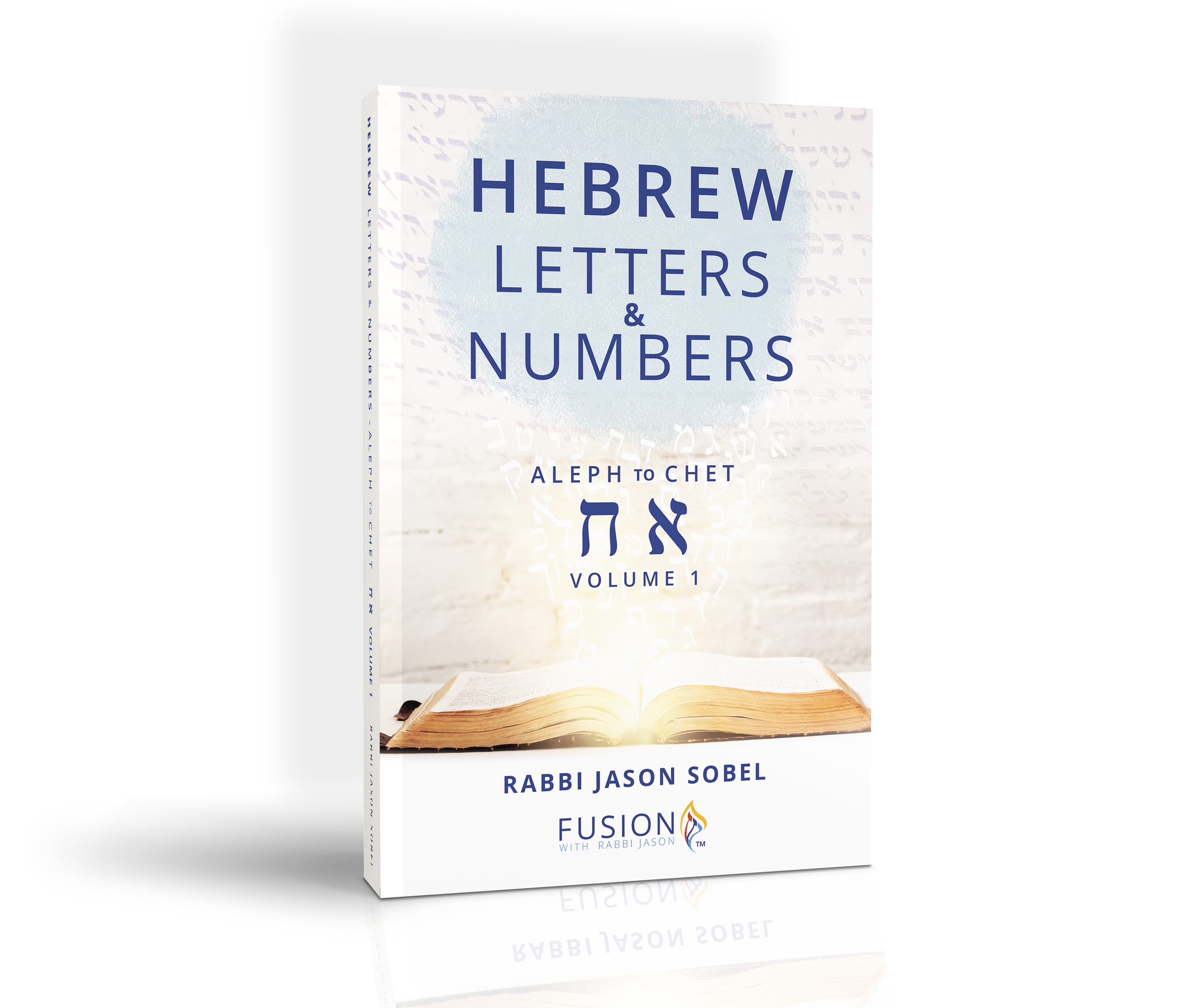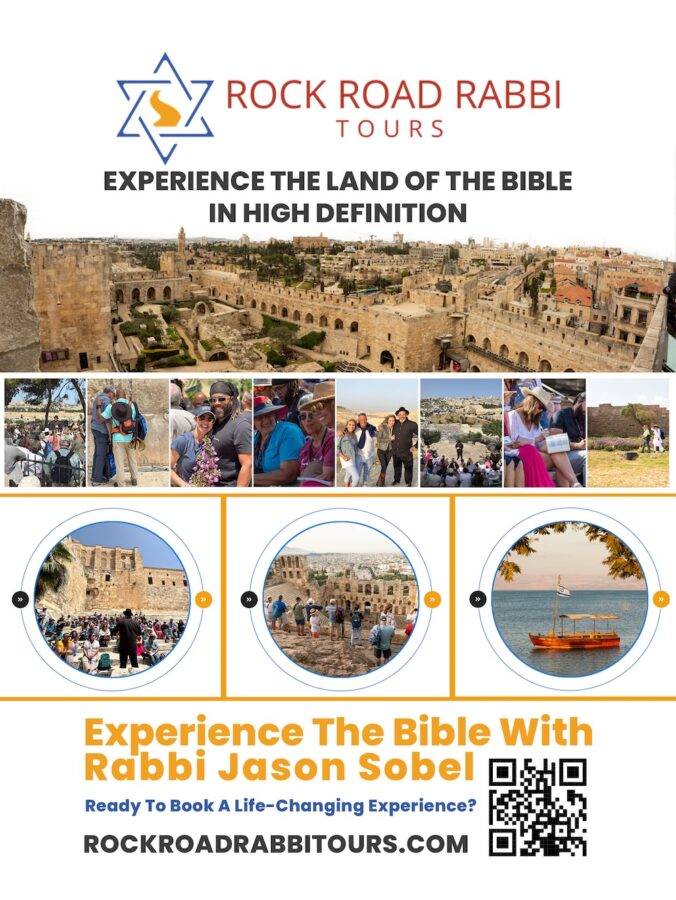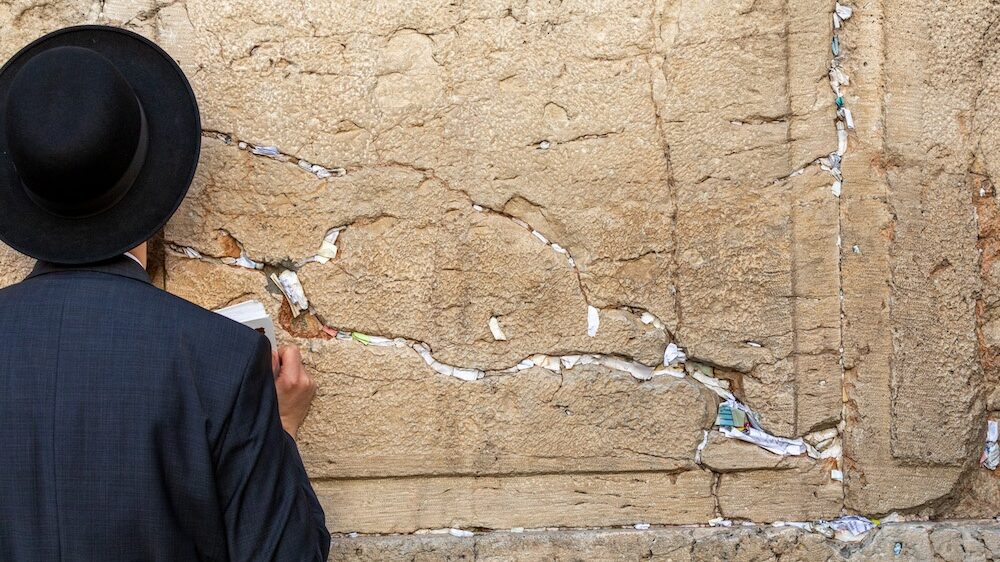
The scapegoat represented the sins of the nation; Yom Kippur points to the ultimate redemption of the world, the fullness of redemption. A redemption is paid for, not by the blood of an animal, which still leaves a deficit, but by Yeshua’s blood, marking the debt PAID IN FULL.
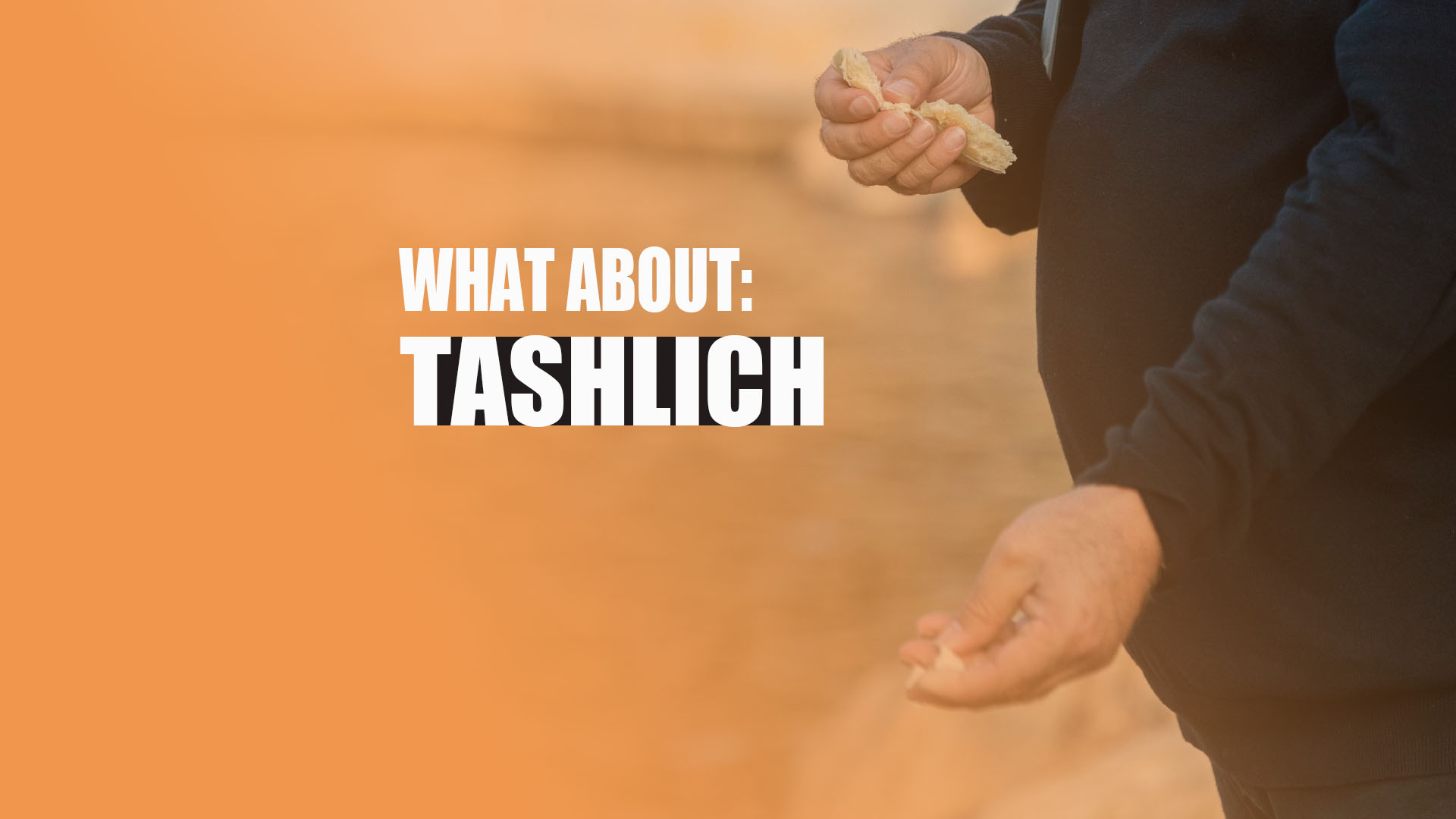
What about Tashlich? In some sense, Tashlich involves the physical act of walking to be next to a body of water as a reenactment and remembrance of the binding of Isaac. Tashlich represents an opportunity for those of us whose lives have been transformed by Yeshua’s sacrificial love to focus on our Messiah’s ultimate expression of surrender on the cross.
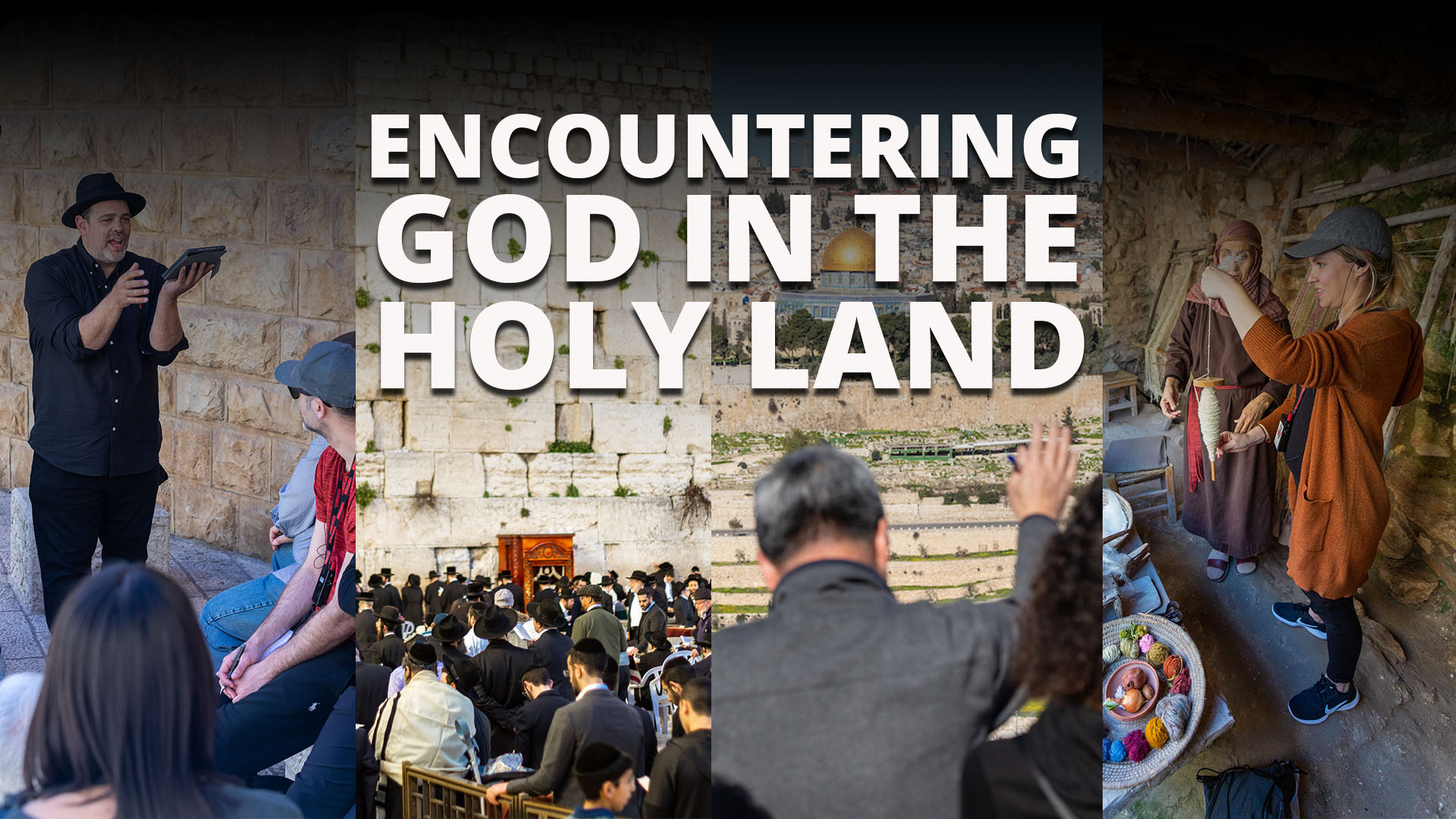
You will encounter God in the Holy Land, an experience of God’s presence in the Holy Land, the place of which God said, “I have…put My Name there forever, and My eyes and My heart will be there every day” (1 Kings 9:3).
Nothing is as precious as the Lord, and no experience is more valuable than being in His presence. As the psalmist declared, “For a day in Your courts is better than a thousand anywhere else” (Psalm 84:11). Time spent in God’s presence—and the intimate relationship with our heavenly Father that cultivates— is something that we should constantly seek.
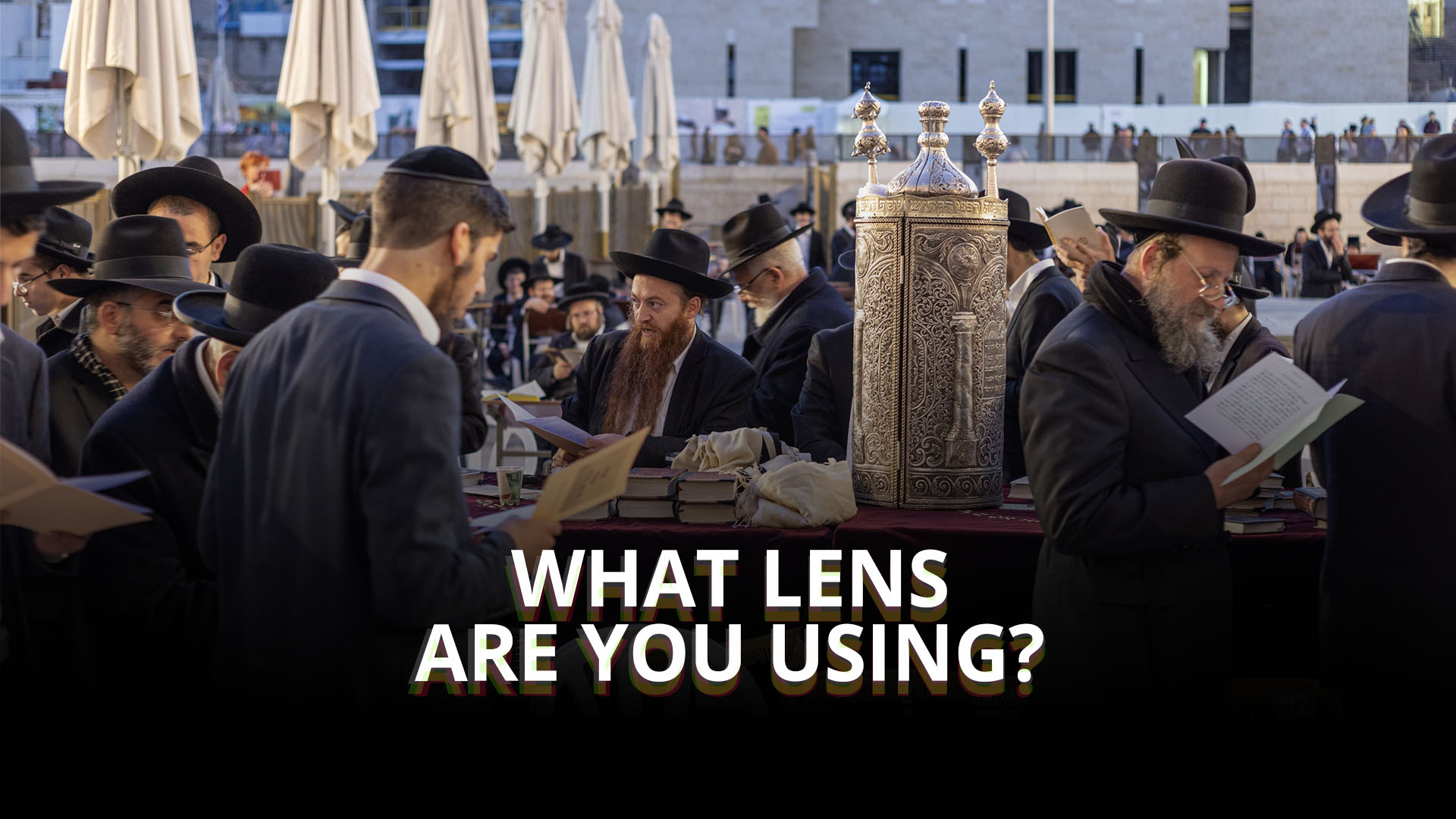
What lens are you using to read your Bible and view the land of Israel? The questions and concerns of the average person walking down the street in Jerusalem differ from those of a person walking down the street in Los Angeles. To walk the streets of Israel and engage local shop owners (and experience an Israeli breakfast) begins the process of learning to think outside of our own culture and to attempt to understand the perspective of another.
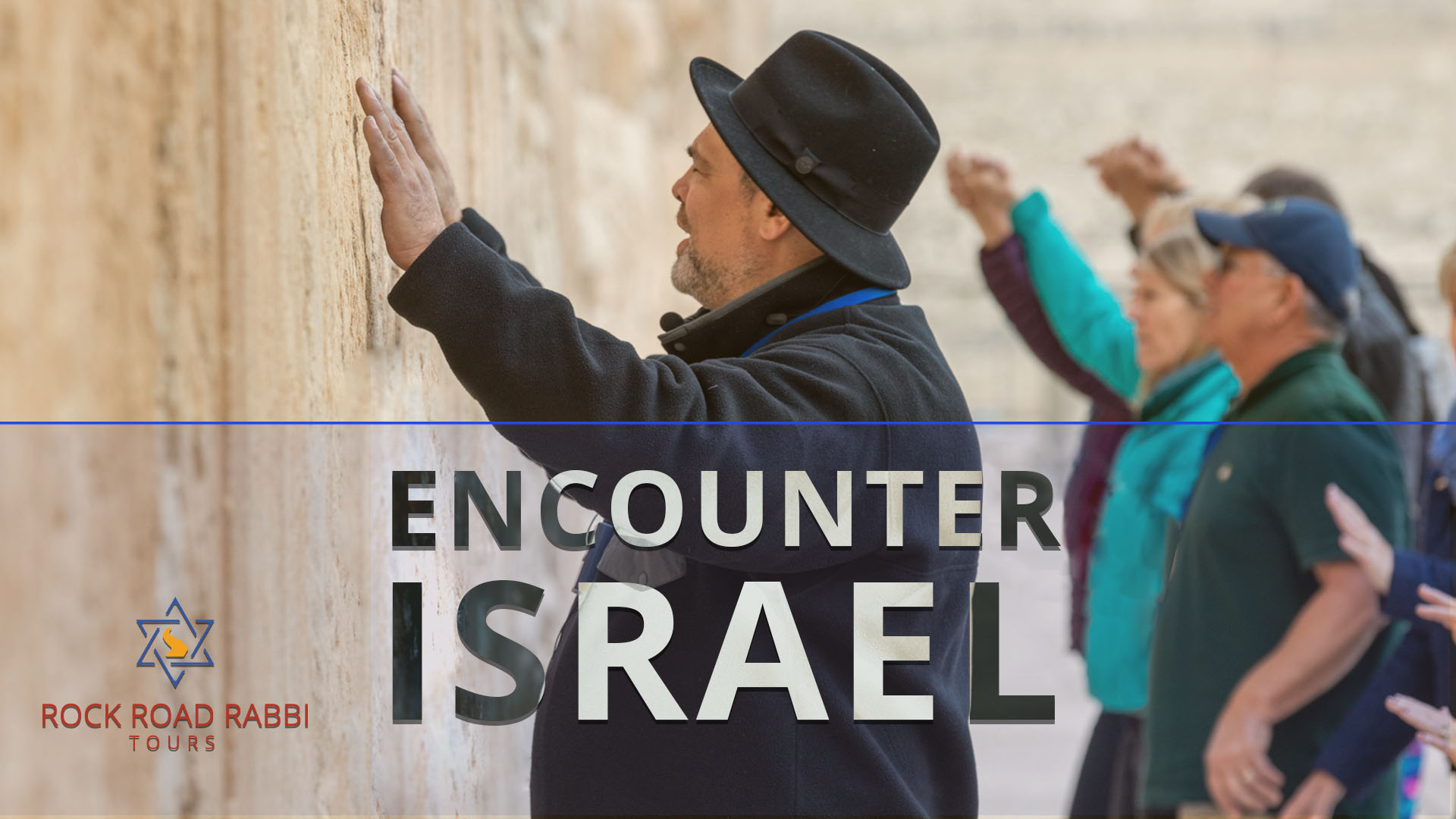
“You could see the wonder in their eyes, much like a young child opening a pop-up book for the first time. The Bible stories coming to life essentially leaped off the page into their personal experience in those powerful moments, an encounter with the Bible and Jesus.”
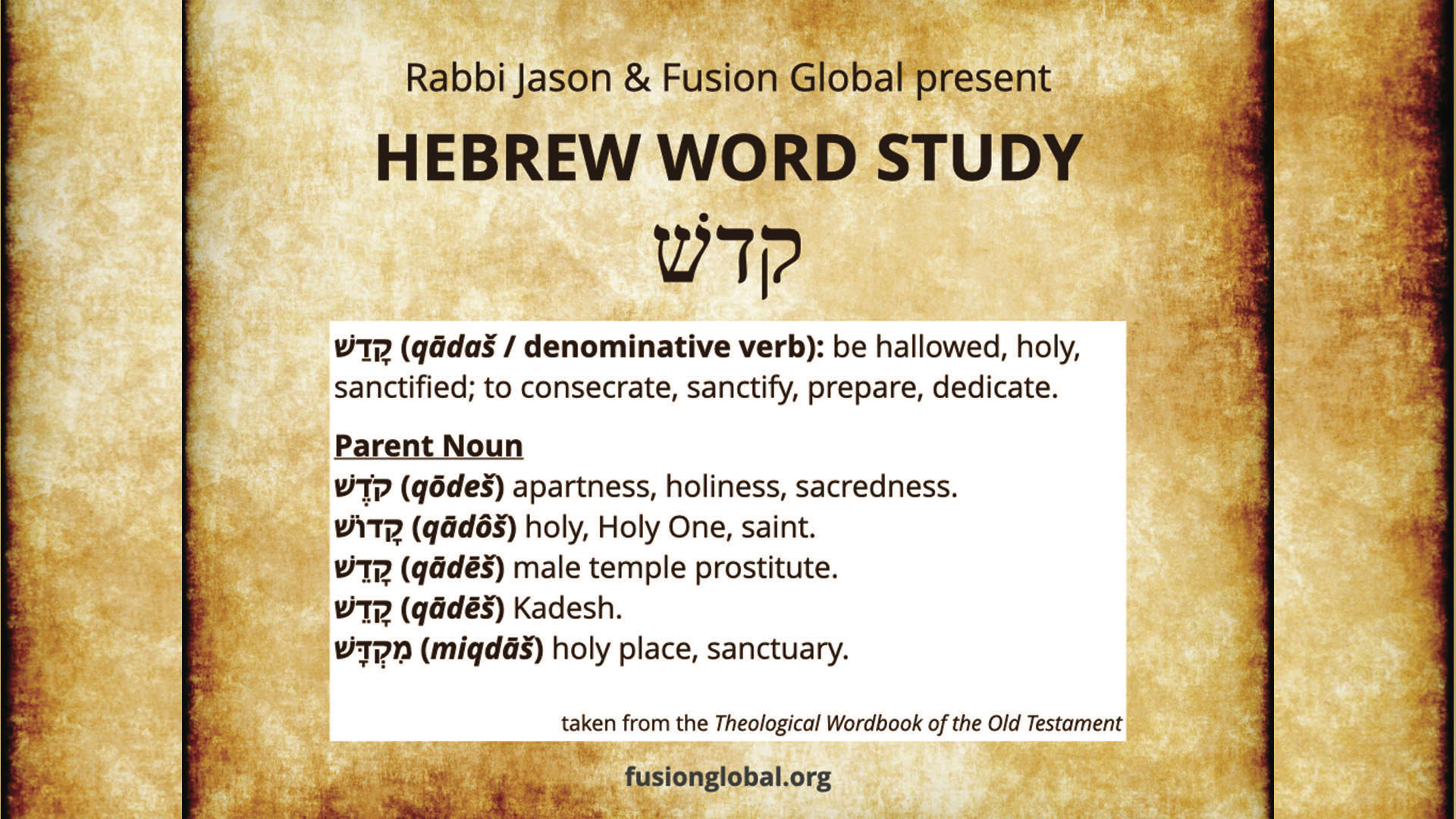
We’re excited to introduce another “deeper” resource to our TPG Tribe: the Hebrew Word Study. We’ve featured a “Hebrew Word of the Week” graphic in our Table of Contents each week, but these articles offer a deeper dive into their meaning as well as their biblical and cultural contexts. Our prayer is that these articles will intensify your hunger for God’s Word.
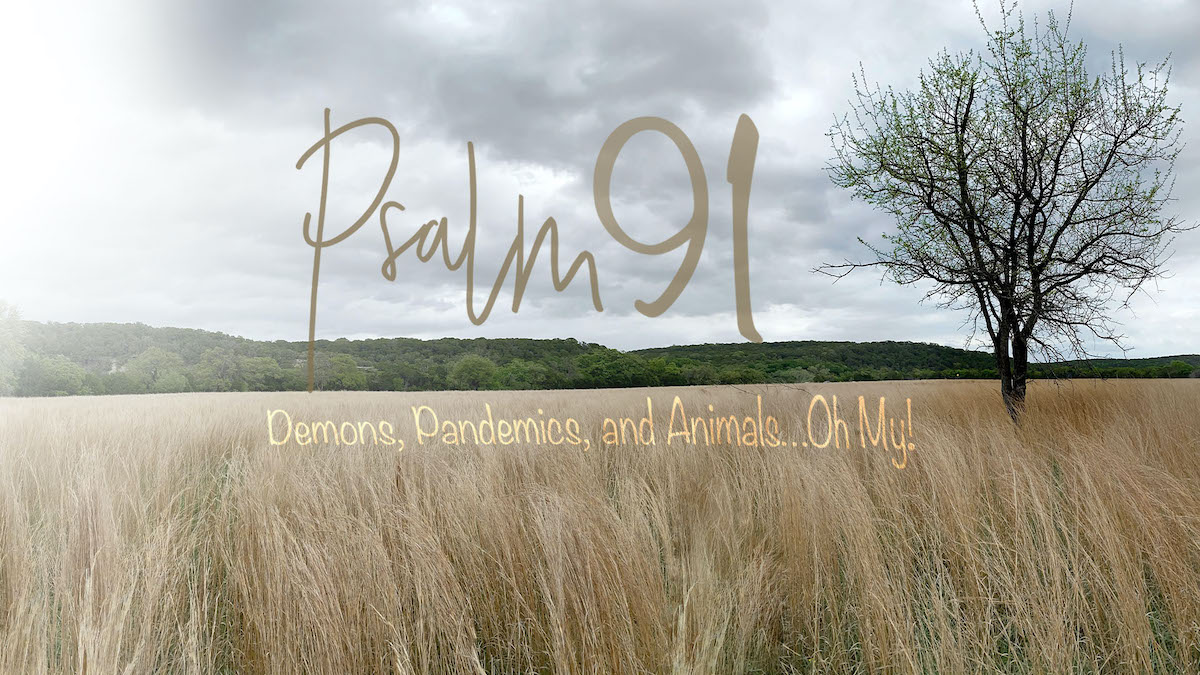
In Psalm 91, what do demons, pandemics, animals, and fighting have in common? Psalm 91 gives the keys to winning battles. Since ancient times, God’s people have considered Psalm 91 an effective weapon comparable to a sophisticated nuclear missile that strikes at the heart of the enemy’s barrage of attacks. It can deal such a deadly blow that our eternal Adversary even tried to desperately wield it against the Messiah Himself—unsuccessfully (Luke 4:9-13). So let’s use this psalm in our arsenal to stand against the enemy’s schemes, those “false arguments and high-minded things that exalt against the knowledge of God” (Ephesians 6:11).
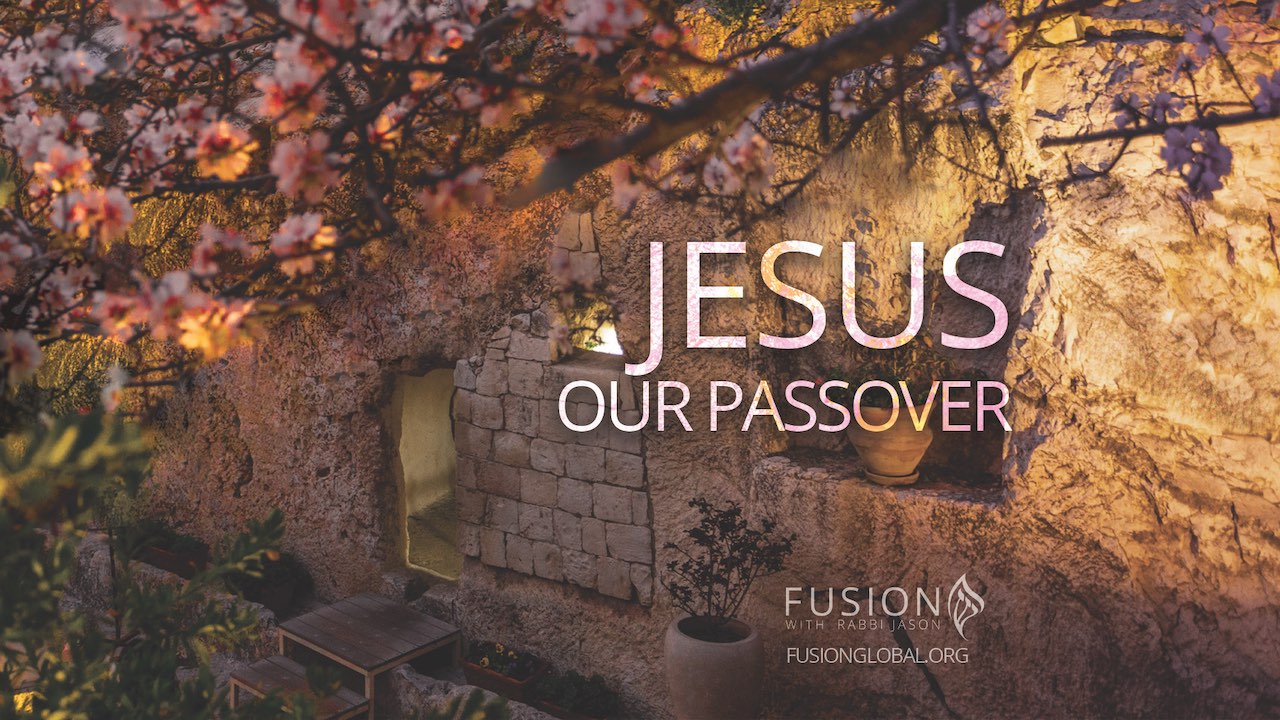
Jesus in the Passover: The Apostles recognized that the Messiah was so intimately connected to Passover that they even referred to Him as “our Passover Lamb” (1 Corinthians 5:7; 1 Peter 1:19), but this raises many questions. Why are the Messiah and Passover so interconnected? What does it mean for Yeshua Jesus to be our Passover Lamb? Join me and let’s journey deeper to explore the answers.
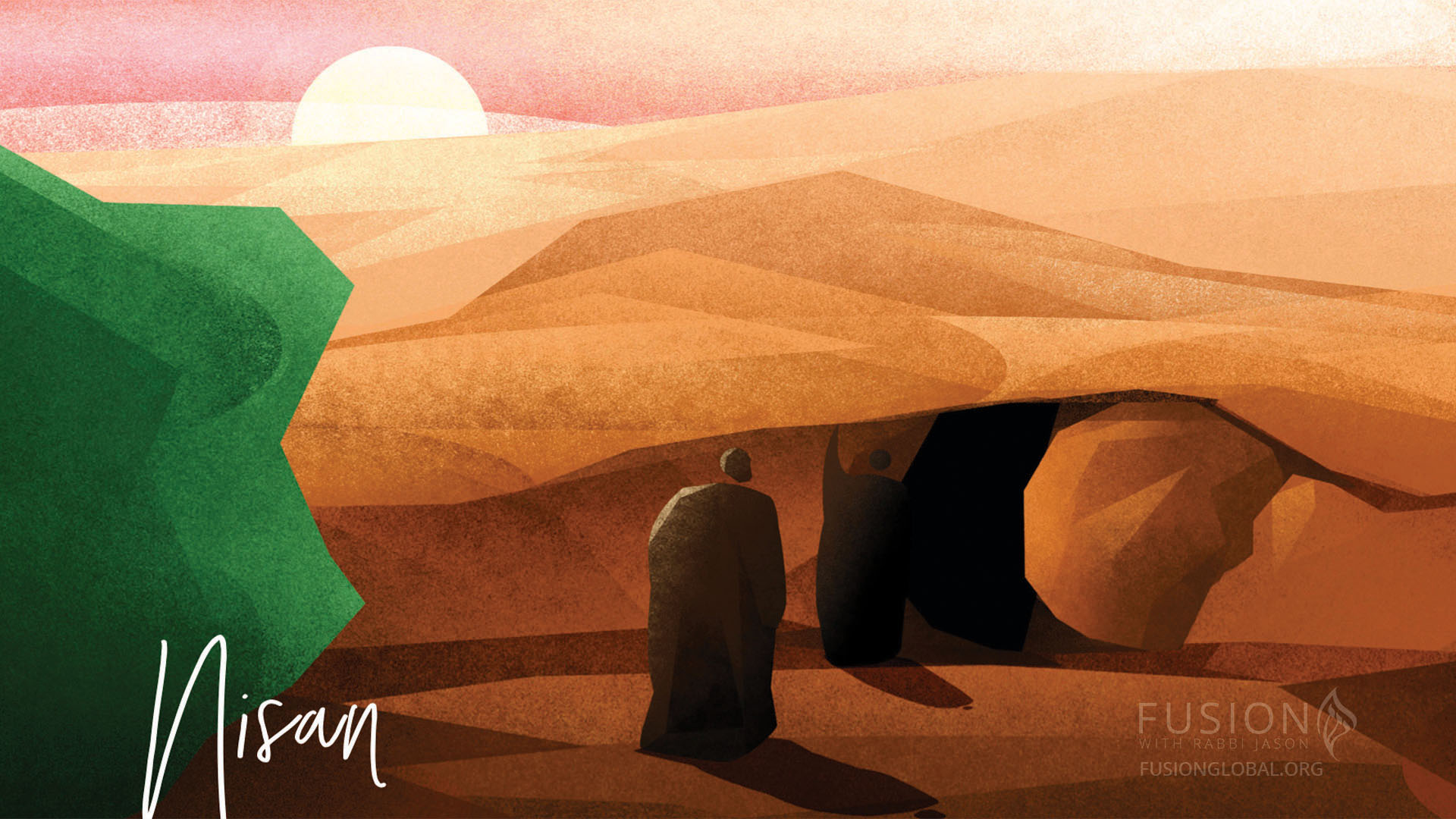
Nisan – Season of Redemption, But what does it mean? Redemption is God reaching down to us in our lowest of places and lifting us out of them miraculously. We carry redemption with us in the form of the indwelling Messiah and, by extension, His Father. Thus, by graciously receiving Yeshua’s redemption, we carry it with us through all our circumstances.
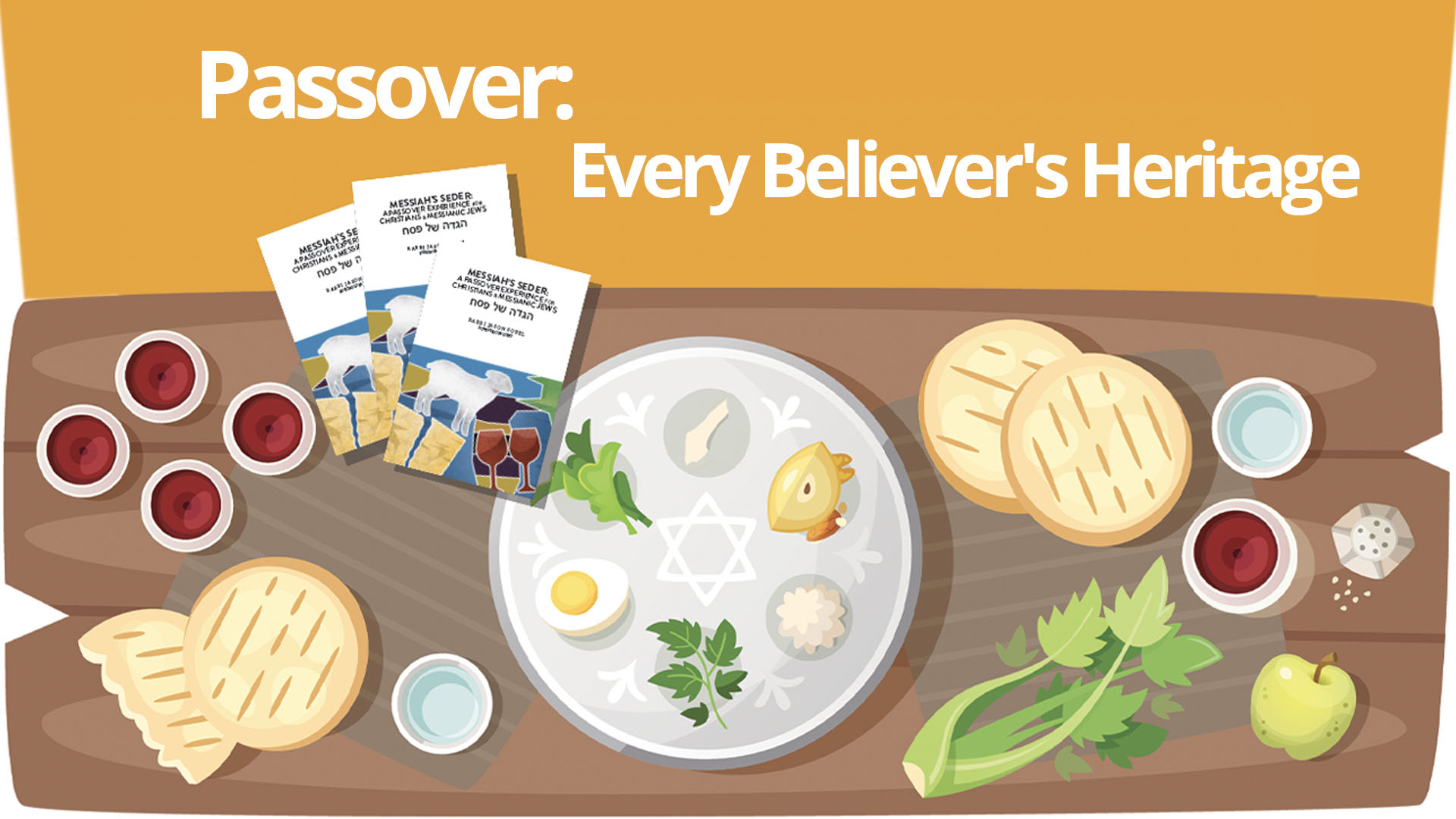
Passover is every believer’s heritage. Whether you’re celebrating Passover for the first time this year or are a seasoned veteran, take hold of the freedom this holiday offers in Messiah. Reclaim your spiritual heritage by participating in Passover this year, and ask yourself, “What will I do with my freedom?”

